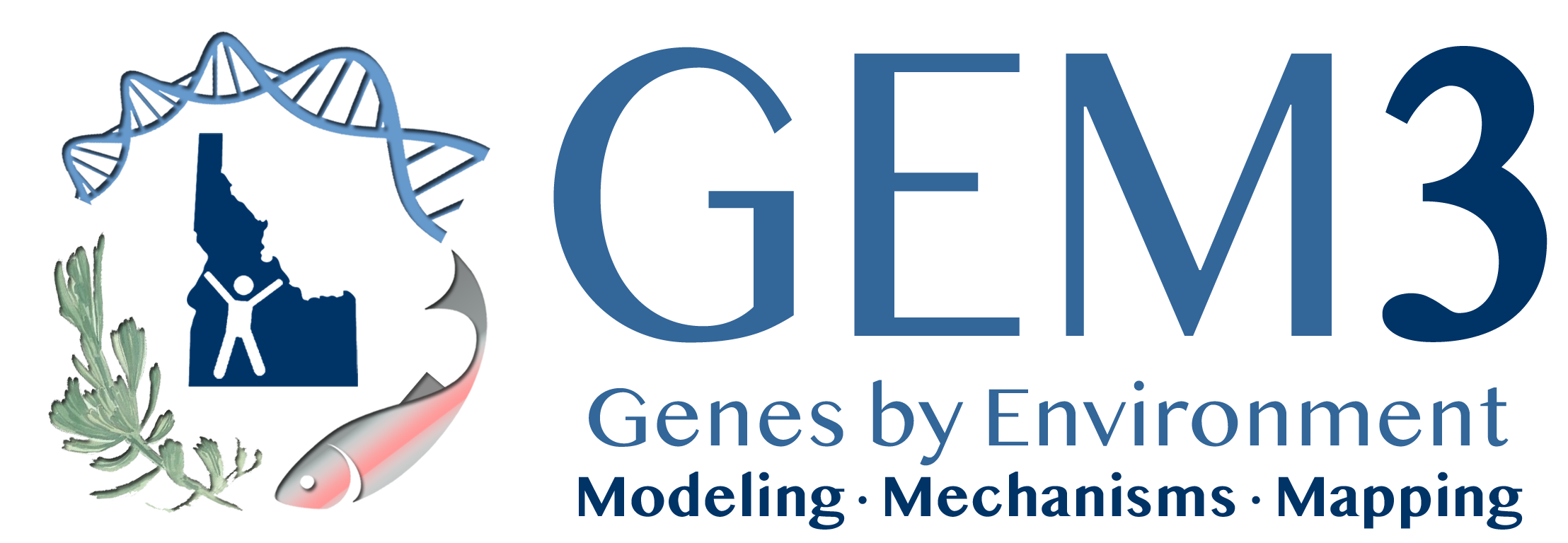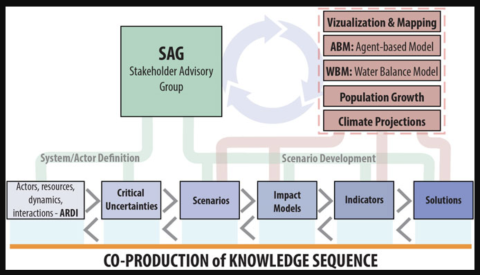Understanding and modeling the trajectories of change in broad level interactions in food-energy-water systems is incomplete when it is undertaken by researchers in isolation from those who live and work in the systems. For models and outcomes to have validity they need to be subjected to sustained development and iteration with stakeholders. This requires a paradigm shift in our thinking of stakeholder engagement from viewing such engagement as an isolated activity or part of the data collection methods to thinking of engagement as a process of knowledge generation. That process hinges on building relationships and building trust, and also sustaining these as long-term relationships through multiple elements of research design and execution. Using the case-study of a mid-size river basin we demonstrate a co-production of knowledge process for food-energy-water systems. The findings highlight the multiple and different ways in which knowledge co-production can be transacted in food-energy-water systems while also generating solutions to the use and re-use of water, energy, and nutrients at the landscape level.
Conceptual diagram of stakeholder advisory group role in the process of co-production of knowledge in food-energy-water research.
| GEM3 author(s) | |
| Year published |
2023
|
| Journal |
Frontiers in Environmental Science
|
| DOI/URL | |
| Keywords |
Socio-Ecological Systems
|
| GEM3 component |
Integration
Modeling
Partnerships
|
| Mentions grant |
Yes
|

